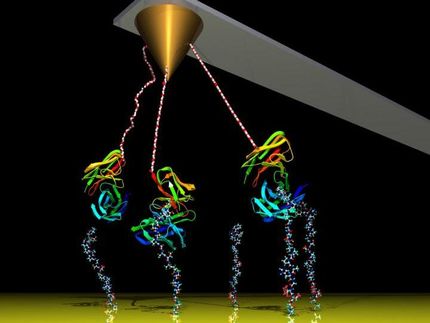Naturally occurring protein has a role in chronic pain
Researchers in France and Sweden have discovered how one of the body’s own proteins is involved in generating chronic pain in rats. The results, which also suggest therapeutic interventions to alleviate long-lasting pain, are reported in The EMBO Journal.
“We are fortunate to have a wide range of technologies that allow us to look more precisely at the molecular events that lead to the onset of chronic pain in animals,” said Marc Landry, lead author of the study and Professor at the University of Bordeaux. “Our results show that the levels of the naturally occurring protein 14-3-3 zeta are higher in the spinal cord of rats that have chronic pain. Moreover, we have been able to demonstrate how 14-3-3 zeta triggers changes in the signalling pathway that leads to the symptoms of chronic pain.”
The 14-3-3 zeta protein disrupts the interaction between the two subunits of the GABAB receptor, a protein complex found on the surface of nerve cells. GABAB receptors are G-protein coupled receptors, a family of receptors that regulate many physiological processes and which are frequently targeted for drug development.
The researchers used antibody labelling and microscopy techniques to investigate the molecular interactions of the signalling proteins. In cells and living animals, they were able to show that the 14-3-3 zeta protein interacts directly with the B1 subunit of the GABAB receptor. This interaction impairs the effective signalling of the receptor and limits the pain-relieving effects of the GABAB receptor under conditions of chronic pain.
The researchers also showed that the treatment of rats with a specific small interfering RNA (siRNA) or a competing peptide, molecules that interfere with the action of the 14-3-3 zeta protein, inhibited chronic pain.
“The impairment of the GABAB receptor by 14-3-3 zeta is a novel mechanism for the modulation of chronic pain,” said Landry. “We see potential in combining the use of inhibitors that interfere with the action of 14-3-3 zeta together with existing drug treatments like Baclofen for chronic pain. Targeting the GABAB dissociation process may be of therapeutic interest since it may allow classical pain killers to be more effective.”
Original publication
Original publication
S. Laffray, R. Bouali-Benazzouz, M.-A. Papon, A. Favereaux, Y. Jiang, T. Holm, C. Spriet, P. Desbarats, P. Fossat, Y. Le Feuvre, M. Decossas, L. Héliot, U. Langel, F. Nagy, M. Landry; "Impairment of GABAB receptor dimer by endogenous 14-3-3 zeta in chronic pain conditions";
Organizations
Other news from the department science

Get the life science industry in your inbox
By submitting this form you agree that LUMITOS AG will send you the newsletter(s) selected above by email. Your data will not be passed on to third parties. Your data will be stored and processed in accordance with our data protection regulations. LUMITOS may contact you by email for the purpose of advertising or market and opinion surveys. You can revoke your consent at any time without giving reasons to LUMITOS AG, Ernst-Augustin-Str. 2, 12489 Berlin, Germany or by e-mail at revoke@lumitos.com with effect for the future. In addition, each email contains a link to unsubscribe from the corresponding newsletter.





















































